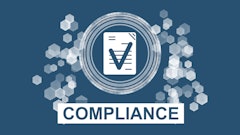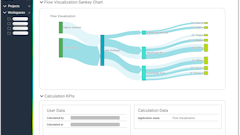When you operate in more then 140 countries around the world, global trade compliance is bound to get complicated. But Tyco Fire & Security is turning that complexity into a competitive edge.
[From Supply & Demand Chain Executive, October/November 2004] Jan Philbrook, who is director of global trade compliance with Tyco Fire & Security, says she often hears talk about all the new restrictions and regulations that the U.S. government has put in place since the September 11 terrorist attacks. "And I have to say, 'No, many of these rules have been around since 1939; it's just that everybody, including the government, is really much more focused on these issues,'" she points out.
Tyco Fire & Security, based in Boca Raton, Fla., is one of five Tyco segments, although with $11 billion in annual sales, 35 manufacturing locations around the world, 90,000 employees and 1,200 offices in more than 140 countries, Fire & Security would easily rank in the upper half of the Fortune 500 were it a separate company. The segment's product lines include electronic security systems; fire protection, detection and suppression systems; sprinklers and fire extinguishers.
Naturally, as a veteran player in the global marketplace, Tyco Fire & Security has long had in place comprehensive processes to ensure trade compliance throughout its worldwide operations, says Philbrook. But she notes that even as trade regulations and market conditions have been changing continuously, so, too, has Fire & Security been working continuously to improve its trade compliance processes.
Moving Up the Learning Curve
Philbrook joined the business about 15 years ago when it was still Sensormatic (Tyco acquired Sensormatic in late 2001) and became distribution and transportation manager in 1995; it was then that she began to work on trade compliance issues. "I realized that we needed to do a lot of work on trade compliance within the company," she says.
The sheer size and reach of the company was part of Tyco Fire & Security's challenge in ensuring trade compliance. The company has major distribution operations globally, including separate operations that handle Canada, the United States and Latin America, Europe and Middle East/Africa and the Asia/Pacific Basin. Philbrook started attending seminars and reading everything she could get her hands on to learn more about the issues involved in trade compliance. In time, she started doing presentations to executive management, advocating that the company have additional resources to cover these issues.
A Solution to Support the Process
Eventually the company assigned a few staff to Philbrook, and together she and her team started strengthening procedures within the Sensormatic organization for trade compliance, such as standardized forms and training for the shipping areas and sales. Initially they didn't have any software solution supporting the new processes they were putting in place, although Philbrook began pushing for that, too.
Why did she see a need for a software solution? Several reasons: "Being a huge, global organization, consistency can be difficult," Philbrook explains, "and training to the level of the person on the shipping dock or in the shipping area that's preparing documentation can be a difficult task for a global company to handle. I'm in this position to make sure that we do follow all global and U.S. trade compliance requirements, and we found that a good software tool can be very helpful in accomplishing that."
In addition, because of the extreme complexity and changing nature of trade regulations, Philbrook and her small team estimated that, lacking any sort of supporting software solution, she would need a staff of at least 30 people, ranging from trade content experts to legal counsel, to be able to globally keep up with all the requirements and Tyco Fire & Security's broad product offering. "The trade content changes daily, especially on a global scale," Philbrook states. "Countries come in and out of sanctions. Our technology changes, too. For a business our size, just keeping track of that is significantly easier when we partner with someone who not only has a software solution but also has a global trade content engine."
In 2001 Philbrook's team examined various solutions available to support global trade operations before finally settling on a hosted solution from a company called Open Harbor, which competes with such enablers as NextLinx, TradeBeam, Vastera and others in the international trade logistics space. Sensormatic had just begun its first implementation with Open Harbor when Tyco bought the company, although at the time Sensormatic was left largely as a standalone company, with Philbrook, by then director of logistics for Sensormatic, bearing responsibility for trade compliance for that business. Philbrook, assigned to her position as global trade compliance director, now sits in the supply chain area, but she has full-time compliance responsibility for Tyco Fire & Security.
Centralizing Global Trade Compliance
Currently Tyco Fire & Security has centralized global trade compliance in Philbrook's team with a full-time staff dedicated to protecting the company's import/export privileges around the world. Philbrook has a staff of nine people, including an import manager and export manager, both specialists in those areas, and a manager of systems and administration. She also has two staff members who operate a "hotline," available by e-mail and telephone, which anyone in Fire & Security can use to get information on trade compliance policies and procedures. "We printed plastic business cards and are distributing them through the entire business segment to let people know that we're here to help," says Philbrook. "The card has the hotline number on it, and on the back it has the ABCs of trade compliance. And the response has been wonderful. People want to do the right thing, it's just very confusing."
In addition to the hotline, the trade compliance team offers education at all levels throughout the business unit on trade compliance issues. All of the trade compliance group's documentation, manuals and training sessions are available online through the company's global intranet and are constantly updated to ensure that employees have the latest information available to them.
The trade compliance team also follows up on all the education with an internal audit called a documentary review process. "It's a good cop/bad cop kind of thing," Philbrook explains. "While we are here to provide training and support to the people, you need some teeth in your program to make sure that people are taking it seriously." The trade compliance team will randomly pull various transactions from around the globe and audit them to make sure that people are doing what they are supposed to be doing. If an issue pops up, the audit team fills out a form in detail for the head of the organization responsible for the execution, describing the error and providing documentation for retraining. Then they go back 30 days later and pull additional sample transactions to make sure they don't find repeated errors. If they do find errors, they kick it up to the next level, as well as to the legal department, to let them know there's an issue. And if they find a third issue, it goes to the head of Tyco Fire & Security and the segment's general counsel to ensure that everyone realizes the importance of the issues and the necessity for compliance.
Similar procedures apply for the segment's trading partners and suppliers. Tyco Fire & Security monitors its brokers, reports to them on their performance, and will meet with them to go over any issues, discuss any needed training and so on. In addition, the trade compliance team has prepared primers on commercial invoice requirements, country-of-origin determination and product marking, and then trained the procurement staff on the documents and required them to send that documentation to all their suppliers. Document reviews ensure compliance by suppliers and can trigger training. "For instance," says Philbrook, "if a supplier in the United States does not understand [the North American Free Trade Agreement (NAFTA)] and how products qualify for NAFTA, I would bring their staff in here and give them a full day's training on NAFTA because it would be to our benefit to do that."
Automated Screening
The Open Harbor solution has allowed Tyco Fire & Security to automate its procedures for screening each incoming order to determine whether the buyer, the buyer's country or any other party involved in the transaction is on a sanctions list; whether a license is required; or whether Tyco Fire & Security is otherwise prohibited from shipping that product to that customer. When an order comes into the company and the order-entry person inputs the order into the enterprise resource planning (ERP) system, the system sends, via extensible markup language (XML), the order details into the software solution.
The software runs the order information against about 35 different lists to which Tyco subscribes, including lists from various countries other than the United States, screening against all the denied or restricted parties and embargoed countries, checking to whom they're shipping and selling, as well as the freight forwarder, and also looking at the product for the particular "ship-to" country to see if there are any licensing issues. If the order passes muster, the system keeps a record of it. If there is an issue, the software system sends an e-mail back to the order-entry person and automatically puts the order on hold so that no one can process that order until someone physically goes into the system, reviews the order to understand the issue and makes a decision as to whether it's a real problem or not. "It's fuzzy logic," Philbrook says of the screening process. "At times it's coming up with an issue and you can review it very quickly and say whether it's a real hit."
When the shipment is ready to go out the door, the system again screens the order to determine whether anything has changed and whether an issue has arisen, for example, if the government has imposed new sanctions on a country. Again, if any issues pop up, the system will put the order back on hold, send the appropriate alert and wait for a resolution. Once a shipment receives final approval, depending on the country to which it's going, the software has a checklist of all the documents required for that country, and the operator only needs to click and print and the system prepares all the necessary documentation, ensuring consistency across the segment.
Additionally, the company's facilities staff can manually log into the system when visitors are due to come into a facility. The facilities staff runs the visitors through the system, along with the product that they're coming to see, allowing the staff to immediately check for any restrictions on sharing information or technology with that visitor regarding that product. Boca Raton-based technical support staff perform the same checks before training or offering service support.
Gaining a Competitive Edge
Philbrook acknowledges that it can be difficult to hang a concrete return on investment on a trade compliance software solution, but she says that, in this day and age, with compliance an absolute requirement and the rules of the game changing so quickly, such a solution has become increasingly valuable. With the compliance solution running in the background on an exception basis, according to Philbrook, the efficiencies that the system has introduced into the company's processes have allowed certain organizations in the enterprise, especially in the distribution functions, to take on more business without added headcount that would otherwise be required to conduct required checks for restricted parties.
In spite of her brief tenure in her new position, Philbrook says that her team has been successful in building awareness of global trade compliance throughout the company and its supply chain. "We've made excellent progress in getting the word further out through the organization and to our suppliers throughout the supply chain," she says. "It does take time, but I will say that we're more in a proactive mode now than in a fire-fighting mode."
Much of the proactive work has come since Tyco Fire & Security integrated compliance with its formal product release process, Philbrook says. "We work very early on with the strategic business units that develop the products to help them understand whether there will be licensing requirements, the landed cost model from a supply chain standpoint and the best scenario for our customers and for the company." For example, just by sourcing some components in a different way, the company may be able to qualify a product for favorable treatment under NAFTA, making it less expensive for both Tyco and the customer.
And allowing the company to provide that level of service to its customers may prove to be the greatest return on investment in building a trade compliance organization with Tyco Fire & Security, according to Philbrook. "It's a service for our customers to be able to tell them that the Tyco products might qualify for a trade program that would allow them to buy the products at a reduced duty," she says. "Being able to make those decisions up front when you are structuring the supply chain for a new product is critical."


























